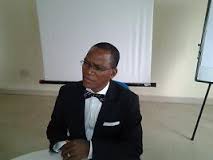By InvestAdvocate
Lagos (INVESTADVOCATE)- Abraham Nwankwo, director general (DG) of Nigeria’s Debt Management Office (DMO) on Tuesday said that about N1.884 trillion expected to be borrowed in the 2016 budget will be dedicated to fund capital projects.
Nwankwo made this disclosure at a one-day workshop by DMO on “Public Debt and the challenge of financing Nigeria’s economic recovery” organised for Capital Market Correspondents Association of Nigeria (CAMCAN) in Lagos.
A breakdown of the expected borrowing include N900 billion and N984 billion external and internal borrowing respectively and logic is to rebalance Total Public Debt Stock in favour of less costly external funds.
“The DMO is committed to making sure that we raise money to fund the 2016 budget deficit from appropriate sources and through appropriate mix during the fiscal year to make sure that capital projects are funded,” he said.
According to Nwankwo, Nigeria’s debt level is highly sustainable and noted that the nation still had a lot of idle potential, which the administration is currently working to harness for effective growth of our national economy.
The DMO DG said that while comparative tax revenue to GDP ratio of Nigeria is less than 7.0 percent, its peer group has a ratio of 18 percent and that of industrialised countries is about 27 percent. He therefore, stressed the need to widen the tax net to generate more revenue for the government.
According to him, Nigeria’s Debt-to-GDP Ratio as at December 31, 2015 is 13 percent compared to 56 percent of peer group; affirming that in this essence our debt is still very sustainable.
“But the critical issue is the ability to service the debt, which is dependent on the Public Revenue – to – GDP ratio,” he added.
To this regard, the DMO DG encouraged all Nigerians to continue to make sure that they pay their taxes fully as at when due because our tax revenue GDP ratio is relatively lower to countries in our peer group.
“As our economy grows, as our GDP grows, as we are collecting enough in taxes from individuals and corporate bodies to be able to fund capital projects, our economy will continue to grow” Nwankwo said.
He further affirmed that debt sustainability and overall economic sustainability can be significantly influence by individuals and corporate bodies paying taxes fully.
Speaking on the economic recession caused mainly by unfavourable structural change in the fall of oil prices globally, he said the Nigerian government is addressing the challenge through diversified, self-sustaining growth in agriculture and agro processing, solid minerals, manufacturing and ICT.
According to him, in the medium to long term, debt sustainability in Nigeria hinges on the overall sustainability of the economic, and the overall economic sustainability hinges on diversifying the economy in a sustainable manner.
“That is what the government is doing in agriculture, solid minerals, ICT and manufacturing. And to do that we need a strong infrastructure base and that is why government is spending what is borrowing on capital projects,” Nwankwo added.







